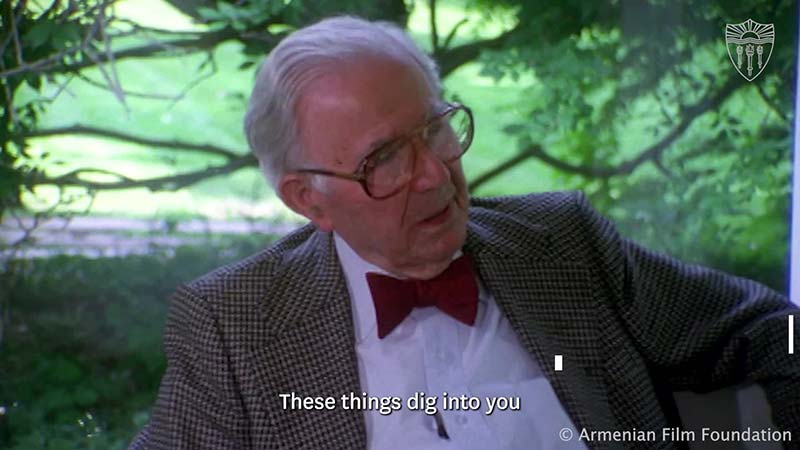Statement from our Executive Director on Armenian Genocide Remembrance Day

On April 24, we call on the world to remember the genocide of the Armenian people.
109 years ago, during the First World War, Ottoman authorities arrested hundreds of Armenian intellectuals and community leaders in Constantinople (present-day Istanbul). At the time, the Ottoman Empire was under the control of the relatively new leadership of the Young Turks; a party that had sought to create an ethnically homogenous Turkish state – a state that would have little space for the millions of Armenians then living in that empire.
The Young Turks claimed they arrested these Armenian leaders as a security precaution related to the war effort. No evidence was given. One month later in May, mass deportations began to Syria, Saudi Arabia, and Iraq. Some of the witnesses to the deportations included German military troops, some of whom protested and acted bravely (including, Armin Wegner), while others gave tacit support to Turkish actions. Indeed, as is well known, even Adolf Hitler drew lessons from the Armenian Genocide, stating to Goering in 1939, “Who, after all, speaks today of the annihilation of the Armenians?”
During the deportations of Armenians, regional officials across the Ottoman Empire oversaw mass shootings, sometimes with the support of the local population. Hundreds of thousands of Armenians died. They were attacked by local bands, were abducted, committed suicide, or fell due to a combination of starvation, dehydration, and disease. The few who survived often endured other brutalities, including extortion, torture, physical violence, and rape. Some Armenian children were also forcibly converted to Islam, which resulted in an erasure of their culture and its legacies.
Because census figures were inexact in the Ottoman Empire, the numbers of those murdered have been difficult to pinpoint. That said, scholarly estimates as high as 1.5 million dead.
Indeed, the scale of the crimes was so great that Raphael Lemkin conceived of the word “genocide” in 1943/1944 with what the Armenian people call the Aghet (catastrophe) in mind.
Yet, the world continued to ignore this history.
Finally, in 1981 a US President first used the word genocide to describe what had happened. Then-President Reagan declared that we need to recall the Armenian genocide because, “Like the genocide of the Armenians … the lessons of the Holocaust must not be forgotten.” Politicking by the government of Turkey, which continues to deny the reality of the Armenian Genocide, stymied efforts until 2019. That year, the House and the Senate passed resolutions affirming that the United States recognizes the Armenian Genocide, rejects efforts to deny it, and encourages education on the genocide. Finally, three years later, on April 24, 2022, President Biden issued the first presidential statement on the genocide using the platform of the White House.
There is still more to do. Too few know this history and its enduring legacies and pain. If we had rejected efforts to deny the Armenian genocide, would the world have looked so passively upon the 2023 ethnic cleansing of Armenians in Nagorno-Karabakh/Artsakh? Would there be more regular and important international dialogue on the differences and similarities between communities that have experienced genocide?
Answering such questions is immensely difficult. One of the first steps is to learn from the survivors of the Armenian genocide.
Here, for example, is a piece of testimony from Hagop Asadourian, who lost 11 members of his family during the Genocide. He was forced to walk 300 miles with no food or water from his home in Turkey to Aleppo, Syria. Once there, he was sent to camps in Damascus and to Tafielah, eventually finding refuge thanks to an orphanage run by the Armenian General Benevolent Union in Jerusalem.
The memories of those who, like Mr. Asadourian, survived the genocide are too few. It is our duty to remember them on April 24 and every day of the year.
Robert J. Williams, PhD
Finci-Viterbi Executive Director Chair, USC Shoah Foundation – The Institute for Visual History and Education
UNESCO Chair on Antisemitism and Holocaust Research
Advisor, International Holocaust Remembrance Alliance
Like this article? Get our e-newsletter.
Be the first to learn about new articles and personal stories like the one you've just read.